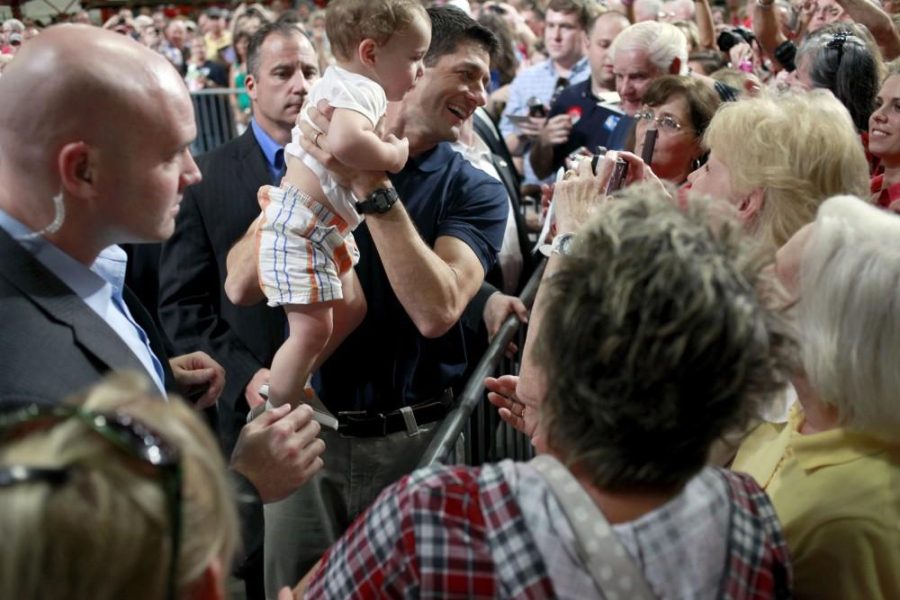WASHINGTON — Rep. Paul D. Ryan has cultivated his “affable wonk” persona into an effective moneymaker, winning over CEOs and K Street lobbyists to build a fundraising machine that has boosted his standing on Capitol Hill and helped make him one of the GOP’s most influential figures.
In 2002, the Wisconsin congressman established a so-called leadership PAC, a fund that allows him to raise money to give to other lawmakers, but the fund did little until 2006, when he began his rapid rise in the House Republican hierarchy. That year, Ryan’s PAC distributed $322,000 to Republicans, a 607 percent increase in giving from the cycle before, according to the nonpartisan campaign finance group Center for Responsive Politics.
After the 2006 election, Ryan, who is now the GOP vice presidential candidate, became the top Republican on the House Budget Committee.
“Part of what you do when you’re a member of Congress who has ambitions and wants to become committee chair is you start raising money and you start giving money to your colleagues,” said Steve Northrup, a Republican health care lobbyist who has hosted several Ryan fundraisers.
“You can’t divorce that from his personality and his smarts,” Northrup added.
The high-profile post and the exposure it has brought has helped Ryan raise even more, which, in turn, has allowed him to cement ties to his congressional allies. In this election cycle, he has brought in $8.5 million to his campaign account and political action committee combined. Of that, Ryan still has more than $6 million in the bank, a notably high reserve compared with his congressional colleagues.
The PAC so far has given more than $539,000 to Republican candidates and lawmakers, a figure that ranks among the top 10 leadership PACs in contributions to federal candidates, alongside prolific congressional fundraisers Eric Cantor, R-Va., and Nancy Pelosi, D-Calif.
“Even the most idealistic members of Congress realize that the way to power is to raise money and to spread it around to your colleagues,” said David Donnelly, executive director of Public Campaign Action Fund, a campaign finance reform group. “(Ryan) certainly learned that early on.”
Ryan has become one of the most requested fundraising surrogates for House Republicans. And he has invested in a multimillion-dollar direct mail campaign that has bolstered his name recognition and given his finance network a national scope.
All that is boosted by his reputation as a legislative expert on the budget.
“You often see a lot of gripping and grinning and talking about the Redskins at fundraising events,” Northrup said. “A Paul Ryan event is not like that. He really engages on the issues.”
Ron Bonjean, a former GOP leadership aide, said Beltway denizens are drawn to Ryan’s ability to converse about the most arcane aspects of legislation.
“He can talk the insiders’ game better than most,” Bonjean said. “They often hear the 30,000-foot Republican talking point. He can go to a microscopic budgetary level.”
Northrup noted that visiting CEOs are increasingly requesting face time with Ryan when they come to town, even if they have no business in his district or legislative matter before his committee.
The insurance, finance and healthcare industries have been his biggest donors over the course of his career, according to an analysis by the Center for Responsive Politics. He has collected checks from some of the right’s most prolific individual donors, including the Koch brothers, the billionaire energy executives whose corporate PAC has given Ryan more than $60,000 throughout his career.
“Ryan is known as a serious policy guy but in reality, his budget is a wish list for wealthy interests,” Donnelly said. “He put forth a policy agenda that matches up with the funding constituencies of the Republican Party.”
Kevin Seifert, a Ryan spokesman, said his boss’s emergence as a top GOP money man is a natural outgrowth of his climbing political profile.
“He’s become a leader on fiscal, economic and deficit issues,” Seifert said. “Obviously as these issues have been put more into focus in recent years, you see a correlation” with increased fundraising.
In the last two election cycles, Ryan has tapped into conservative grassroots dollars by investing $3.5 million in a direct mail program that touts his policy proposals as a fundraising appeal.









